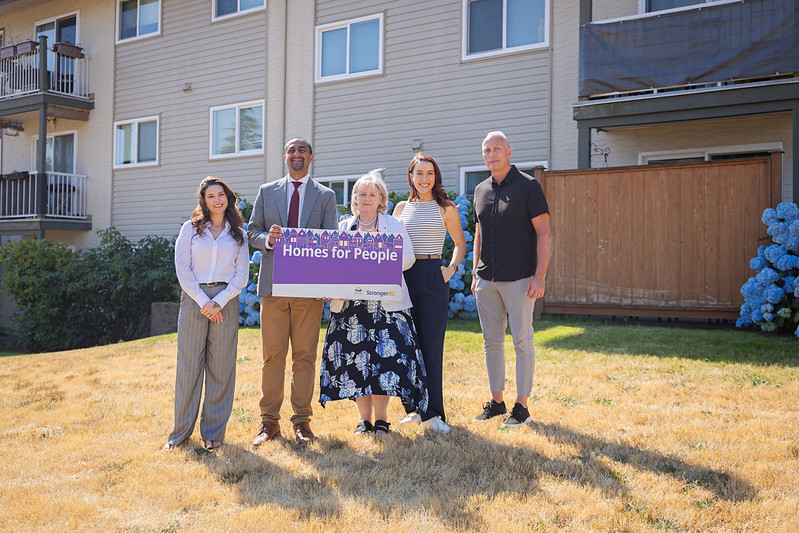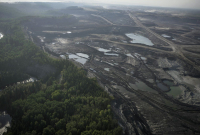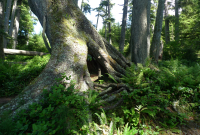Support strong Canadian climate journalism for 2025
More than 380 rental homes have been preserved on Vancouver Island for people struggling to keep affordable housing, thanks to an initiative unique to Canada.
Established in British Columbia last year, the Rental Protection Fund allows non-profit organizations to purchase buildings at risk of redevelopment or where tenants likely face significant rent increases. To preserve affordable housing, the fund requires buildings to keep existing occupants.
On Vancouver Island and the central coast, there are about 57,000 housing units that could be lost from the affordable rental market, and in the lower-mainland, there are 175,000 units at risk.
But this month, the fund announced a $6.25 million grant to the Ballenas Housing Society to acquire 50 rental units in Parksville, and $28.21 million to Connective for 153 rental units in Campbell River, 56 in Duncan and 125 in Port Hardy, with 20 units set aside in Port Hardy for working professionals in the area.
The program was launched with a $500-million investment by B.C.’s Ministry of Housing, and a mandate to acquire affordable rental buildings for sale. The initiative prevents property sales to private investors or developers. Instead, the fund receives and approves application proposals to purchase buildings from non-profits.
Once a non-profit acquires a building, it is responsible for managing it. The financial support provides capital to purchase the building and an allowance for any necessary repairs and upgrades.
The Rental Protection Fund reports that over five years, 100,000 affordable homes were redeveloped or had rents increased to unaffordable levels, based on the 2021 census. The fund was established following a proposal to the Ministry of Housing by the BC Non-Profit Housing Association, Co-operative Housing Federation B.C., and the Aboriginal Housing Management Association.
British Columbia Minister of Housing Ravi Kahlon says there are many buildings for sale in B.C. that are less attractive to private buyers because they may be older or in need of some repair, making sales to the non-profit sector a win-win for housing in the province.
“Real estate investment firms [REITs] that were buying up older buildings, and in some cases, … displace people to try to increase rents, we've seen them make an exodus out of the province,” Kahlon says.
“They would prefer not to be in the space of older buildings, and they're just going to invest in new purpose-built rentals, which is a space that we have no issues with them being in.”
Working with the not-for-profit sector on affordable housing makes sense because buildings operated by non-profit organizations consistently have lower rents than for-profit operations, Kahlon adds. The funds also allow a non-profit to make a sizable down payment on the buildings, keeping mortgages low and subsequently, rents.
Mark Miller, CEO of Vancouver-based non-profit Connective, says they can afford to keep rents low because it is not in their mandate to make a profit. Rent collected from residents is used to maintain the building and operations, not turn a profit, he noted.
Miller says existing residents will be grandfathered, and future vacancies will be filled by applicants who will go through an income-testing process. Where a for-profit owner might look at income criteria as a way to maximize rents, Connective will be looking at income to confirm they require affordable housing, and what they can pay, something that will likely vary by community.
“There will be income thresholds, similar to what B.C. Housing might do [to] ensure that the individual requires affordable housing and then their rent is based on what's defined their ability to pay,” Miller said.
Rents will gradually increase but at a lower rate than the rest of the province. Currently, the provincial allowable increase is 3.5 per cent annually, while Connective will be increasing at 3.15 per cent for Port Hardy, Campbell River and Duncan units.
In April, the federal government announced they would be following in the footsteps of B.C. with their own $1.5 billion Rental Protection Fund, using a similar model to save affordable housing through the non-profit sector across the country.
In B.C., thousands more affordable units have been approved by the Rental Protection Fund but the money is already dwindling. Kahlon says he will advocate in government to replenish funds in the future. The program has already been asking for additional funding as more affordable rental building purchases are approved.
“I'm not the Minister of Finance, so I can't comment on decisions around money,” Kahlon said. “But we are really proud of this program, it’s showing success, and it's my expectation that it'll continue to expand as we go forward.”






Comments